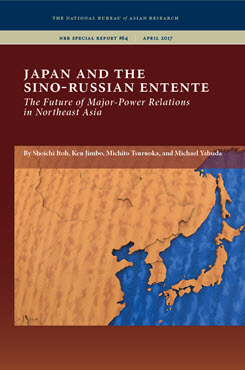Sino-Russian Energy Relations in Northeast Asia and Beyond
Oil, Natural Gas, and Nuclear Power
This essay examines the background, current state, and future challenges of Sino-Russian energy relations.
EXECUTIVE SUMMARY
This essay examines the background, current state, and future challenges of Sino-Russian energy relations.
MAIN ARGUMENT
Russia has expedited efforts to increase its presence in the Asia-Pacific amid serious challenges to its energy sector, including geographic constraints of domestic hydrocarbon production and the U.S. shale gas revolution. In particular, Russia has sought out new market opportunities for its oil and gas exports while it gradually works to shift domestic production centers to its eastern regions. Yet although Russian oil exports to China rose dramatically in the past decade, there remain uncertainties with regard to how much further Russia can increase the volume of its overall oil supplies in the near future despite the sufficiency of its export infrastructure. On the other hand, Russia’s infrastructure for gas exports from its eastern regions is still inadequate at a time of intensifying competition for the regional gas market. Finally, whereas Sino-Russian interests generally converge in the oil and gas sectors, the two countries’ interests in the nuclear sector are increasingly divergent.
POLICY IMPLICATIONS
- Sino-Russian interdependence has significantly deepened in the oil sector in recent years, whereas bilateral cooperation in the gas sector is just now slowly emerging. The development of the Sino-Russian partnership in the oil and gas sectors should not be a matter of concern for any country, including Japan and the U.S., given that it would entail positive effects on the stability of the regional as well as the international energy market.
- As a latecomer to the Northeast Asian energy market, Russia cannot use oil and gas exports as diplomatic leverage in the region. Instead, China could take the lead in designing the way in which Russia is effectively engaged.
- The potential intensification of Sino-Russian competition in civilian nuclear markets should concern the West. Unless relevant measures to maintain rigid control over the diffusion of sensitive nuclear technologies and materials are implemented internationally in a timely manner, such competition could erode the global nonproliferation regime.


